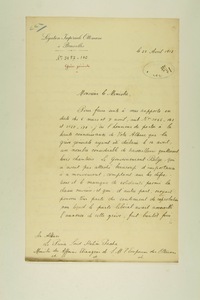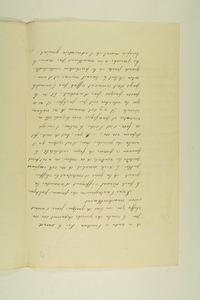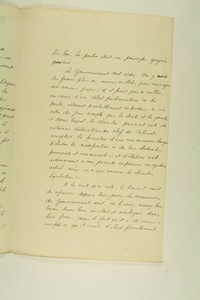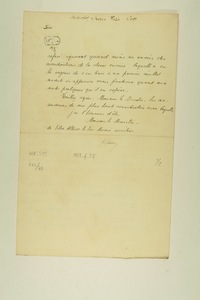Ottoman Diplomats
Letters from the Imperial Legation in Brussels (1849–1914)
Synopsis
Grève générale
Seïfeddin Bey informs Saïd Halim Pacha about a general strike in Belgium, in the mining sector and the industrial sector. The Catholic cabinet did not expect that it would come this far. On the one hand, the government counted on the lack of solidarity within the working class. On the other hand, the government believed that it could take advantage of the disapproval of the strike by the Liberal Party. Since the second day, however, there were more than 200.000 strikers, and the number increased rapidly. The Catholic Party tried to deny the seriousness of the strike, whereas the socialists perhaps exaggerated their victory. Consequently, the exact number of strikers was unknown, but according to Seïfeddin Bey, there were certainly more than 400.000. The strike drew strength from its order, calm and pacific energy. Even though the mining and industrial sectors were seriously affected, the strikers morally benefited from the general admiration for them. The government had to succumb. During a parliamentary debate, the right and the left agreed on the formation of a commission, charged with the examination of electoral reforms (in the first place on the provincial and the communal levels). Seïfeddin Bey criticizes the government’s concessions, but the fact that it agreed on terms it had refused before, was a step in the right direction.
Facsimiles
| Series | HR.SYS-222-70 |
|---|---|
| Place | Brussels |
| Date | 28-04-1913 |
| Author | Seïfeddin Bey |
| Recipient | Saïd Halim Pacha |
Names
How to cite
If you use this website for your own research, we kindly ask you to mention the following reference in your publications:
Consulted online at Ottoman Diplomats: Letters From the Imperial Legation in Brussels (1849–1914) (2014 Edition), Centre for Political History (PoHis), University of Antwerp, <http://dighum.uantwerpen.be/ottomandiplomats/>.





